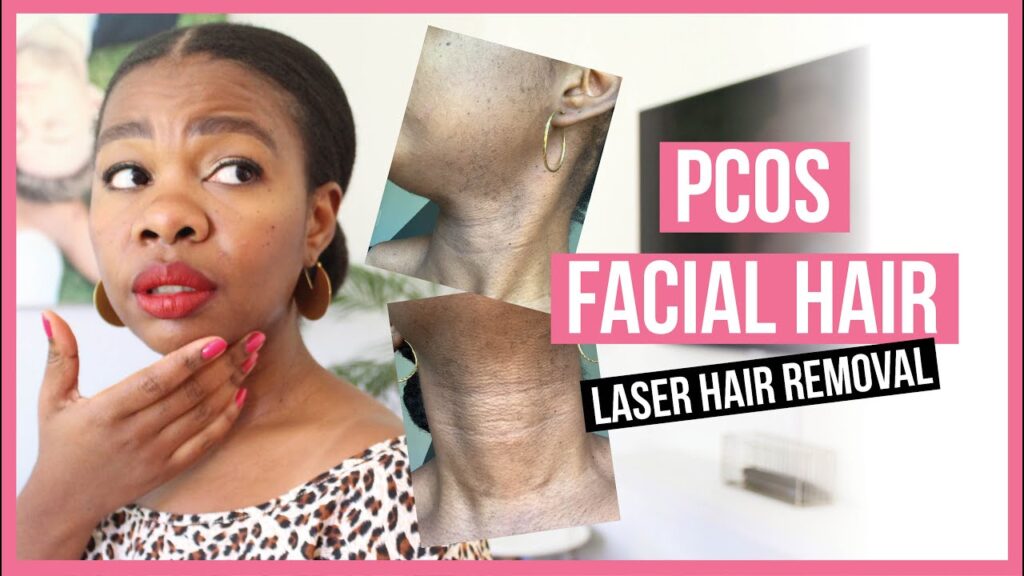
Several women are affected by the hormonal disease known as polycystic ovarian syndrome (PCOS). Hirsutism, or excessive hair growth on the face, is one of its many symptoms and is frequently upsetting and frustrating. Hormonal imbalances, particularly an overabundance of androgen hormones like testosterone, are what cause facial hair development in women with PCOS. We will try to find a proper answer to the question, Can you reverse PCOS facial hair?
When women with PCOS develop facial hair, it can have serious psychological and emotional repercussions, which can lower confidence and self-esteem. It may have an impact on a woman’s social contacts, romantic relationships, and even professional chances. A multifaceted strategy that includes both medical measures and emotional assistance is needed to deal with facial hair development. Medical therapies for women with PCOS concentrate on hormonal management to address the problem of facial hair development. To control periods and lower testosterone levels, doctors frequently prescribe oral contraceptives. Estrogen and progesterone, which are present in these tablets, aid in re-establishing hormonal equilibrium. Anti-androgens, which inhibit the impacts of androgens on the human body to stop excessive hair growth, are another commonly prescribed prescription.
There are several ways to control the development of facial hair, excluding medical procedures. Traditional procedures like waxing, shaving, and plucking may offer momentary relief but may also irritate and hurt the skin. Electrolysis and laser hair removal are longer-lasting methods that aim for hair follicles and prevent further growth. Nevertheless, these treatments may be pricey and require several sessions. For females who are suffering from facial hair development, emotional support is essential. Individuals can get support through counseling, therapy, and support groups to deal with the psychological effects of hirsutism. Finding people who have gone through comparable struggles may give one a sense of community and comprehension. It’s crucial to keep in mind that, despite the fact that facial hair development might be upsetting, it has nothing to do with a woman’s value or femininity. The path to recovery and self-confidence must include accepting one’s innate attractiveness and attaining self-acceptance.
In order to overcome the emotional difficulties brought on by hirsutism, it can be uplifting to seek expert assistance and surround oneself with a supportive network. The development of facial hair in females with PCOS is a troubling symptom that can negatively affect their mental health. Combining medical treatments, such as hormone management, with practical hair removal techniques is necessary to solve the problem. The importance of emotional support in assisting women in overcoming the psychological impacts of hirsutism cannot be overstated. Women may reclaim their self-confidence and accept their individual attractiveness with the correct attitude and assistance.
Suggested Read: Can You Reverse PCOS With A Diet?
Psychosocial Effects Of Facial Hair Development In PCOS Patients
People with PCOS may have significant psychological effects from facial hair development. A hormonal condition known as PCOS is characterized by elevated levels of androgen, androgen which can promote the development of excessive facial hair, or hirsutism. Significant emotional anguish brought on by this illness can have a variety of psychological implications. The existence of hair on the face can have a detrimental effect on body image and self-esteem. As a result of social beauty standards that promote smooth, faces with no hair as attractive, people with PCOS may feel embarrassed, self-conscious, and ashamed. The apparent hirsutism symptoms can make sufferers feel odd or less feminine, which can harm their self-esteem and general psychological health.
It can be emotionally taxing to deal with everyday facial hair maintenance. Regular hair removal procedures, including shaving, plucking, waxing, or applying depilatory lotions, may be tiresome and time-consuming. Coping with undesired hair growth on a regular basis can cause annoyance, worry, and feelings of being entrapped in an unending struggle with one’s own body. Beyond how one perceives oneself, facial hair development in PCOS has psychological effects. Social interactions may also be impacted. People with hirsutism may avoid social situations, avoid engaging in social activities, and have trouble establishing and sustaining relationships because they fear judgment or rejection from others.
A thorough strategy is needed to address the psychosocial effects of facial hair development in people with PCOS. Supportive medical staff, therapy, and support groups may all be quite helpful in assisting patients in managing the emotional effects of this disease. Another way to lessen stigma and foster tolerance and acceptance is through educating others about PCOS and hirsutism. Additionally, encouraging self-care behaviors like body acceptance, and self-compassion, and discovering efficient hair removal methods can help people with PCOS feel better psychologically and physically overall.
Can You Reverse PCOS Facial Hair With The Help Of A Dietitian?
It’s crucial to remember that while a dietician in purnia can help manage certain parts of PCOS, it may not be feasible to completely reverse the condition’s tendency to promote facial hair development. Hirsutism, a condition marked by excessive facial hair growth, is mostly brought on by the body’s high androgen levels. PCOS is a complicated hormonal illness. However, a nutritionist can assist those who have PCOS in making dietary changes that could enhance overall hormonal equilibrium and lessen symptoms. A healthy, well-balanced diet can aid in treating PCOS-related issues, including weight loss, insulin sensitivity, and blood sugar levels.
The dietitian may suggest a diet that minimizes processed foods, refined sugars, and saturated fats while emphasizing whole foods like fruits, lean proteins, vegetables, and whole grains. Insulin resistance, which is frequently linked to PCOS, may be managed with the use of this diet. Additionally, dietary adjustments could support general health and well-being by addressing any underlying nutritional deficits.
In order to maintain hormonal balance and skin health, might involve ensuring a sufficient diet of minerals, vitamins, and antioxidants. Even though a dietitian’s advice might be helpful in controlling PCOS symptoms, it’s crucial to speak with a healthcare professional who can offer a thorough treatment plan. For those with PCOS, medical measures, including hormone therapy or cosmetic measures could be required to address and minimize facial hair development.

Hello My Name is Dt. Ruksana Azhar and I am a certified dietician and providing online & offline services for Weight Management, PCOS/PCOD Management, Diabetes Management , etc. I have 12+ years of experience in the Apollo Hospital Delhi , Max Super Specialty Hospital Delhi, Lilavati Hospital Mumbai and VLCC healthcare Mumbai. I loves to write healthcare and lifestyle related blog. My favorite part of being a doctor is the opportunity to directly improve the health and wellbeing of my patients and to develop professional and personal relationships with them.



